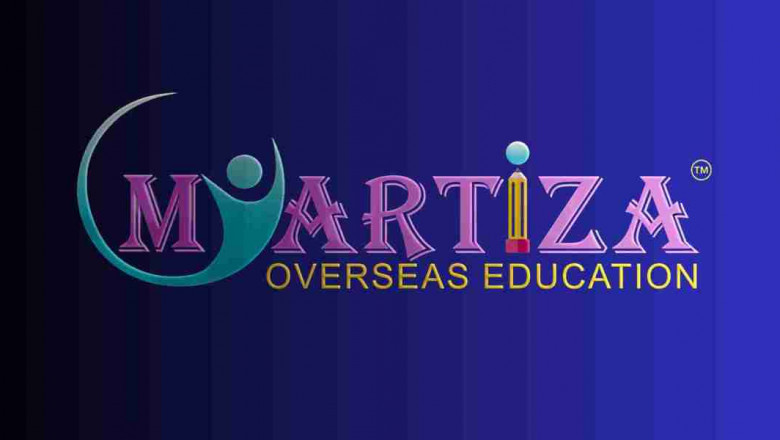views
Understanding Intakes in Ireland: A Guide for International Students
In recent years, European countries have taken the lead in attracting students pursuing higher education abroad, with Ireland consistently recognized as the top choice for international scholars. A noteworthy feature of Irish universities is that they all rank within the top 5% of institutions worldwide. The country’s prestigious education system, globally acknowledged degrees, and strong job market significantly boost its attractiveness. From the historic architecture of Trinity College Dublin to the cutting-edge research facilities at University College Dublin, Ireland offers a remarkable blend of tradition and innovation, positioning itself as a dynamic academic and cultural center.
with Ireland consistently recognized as the top choice for international scholars. A noteworthy feature of Irish universities is that they all rank within the top 5% of institutions worldwide. The country’s prestigious education system, globally acknowledged degrees, and strong job market significantly boost its attractiveness. From the historic architecture of Trinity College Dublin to the cutting-edge research facilities at University College Dublin, Ireland offers a remarkable blend of tradition and innovation, positioning itself as a dynamic academic and cultural center.
As we enter 2025, there has been a significant rise in applications from international students compared to the previous year. If you are contemplating studying in Ireland, understanding the academic calendar is crucial for your planning. To assist with your research, this article will outline Ireland’s academic intakes, their timelines, and important considerations. Read on to learn more about these intakes and find the one that aligns best with your goals and schedule.
Types of Intakes to Study in Ireland
1. Autumn Intake
The Autumn intake is Ireland’s primary and most popular intake. It is widely known as the ‘September Intake’ and nearly all courses are offered during this intake.
2. Spring Intake
The Spring Intake is a secondary yet significant period for admissions. It is also known as the ‘January or February Intake’. Limited courses are available during this intake.
3. Rolling Intakes
Certain universities offering specialized programs have flexible rolling intakes. This indicates that they accept applications throughout the year.
Considering that you are now familiar with academic intakes, understanding their nuances such as application deadlines, course availability, and admission competitiveness will help you align your application timeline with your academic goals. Keep reading to find out more about the Autumn and Spring Intakes to study in Ireland.
Which Intake to Opt for Study in Ireland & Why?
Choosing the right intake is crucial and should align with your course interests, application readiness, and future career goals. Let’s explore the key intakes available in Ireland: 1. Autumn Intake This is the main intake, providing the most extensive selection of courses and the highest number of available spots. Application Timeline: Applications typically open in October and close by May or June for most Irish universities and institutions, with some programs extending deadlines to July. Reasons to Opt for the Autumn Intake:
- It coincides with the academic schedules of many countries, eliminating the risk of an academic gap.
- There are more scholarship options available.
- You’ll benefit from extensive networking opportunities due to a larger student body.
2. Spring Intake If you missed the Autumn Intake and your desired course is available, it’s wise to apply early as spots are limited. Application Timeline: Applications usually open in September of the previous year and close by November or December. Reasons to Consider the Spring Intake:
- It allows for a mid-year start, giving you time to complete prerequisites or gain relevant experience before your course begins.
- There is less competition for both admission and housing.
- Smaller class sizes lead to a better student-to-professor ratio.
With a clear understanding of the popular intakes, let’s take a moment to review the universities and colleges that offer courses for each intake.
FAQs
1. When is the best time to start preparing for the Spring Intake in Ireland? It’s crucial to start your preparations early! Aim to begin 10-12 months ahead of time. This timeframe gives you the opportunity to thoroughly research universities, compile necessary documents, take any required standardized tests, and apply for your visa. For the Spring intake, initiate your application process by February-March of the previous year to ensure you meet all deadlines. 2. Are there scholarships for the Spring and Autumn intakes? Absolutely! Scholarships are offered for both intakes. Irish universities, along with government-funded initiatives like the Government of Ireland International Education Scholarship, provide merit-based scholarships. Additionally, many universities have specific scholarships for each intake, so be sure to review the eligibility requirements for your selected intake. 3. Which intake is preferable for engineering courses in Ireland? The Autumn intake is generally the more advantageous choice for engineering courses, as it features a wider array of programs, research opportunities, and partnerships with industry. However, if you find a suitable engineering program available in the Spring intake and are well-prepared, it can also be a viable option. 4. Is it possible to change my intake after applying? While it is possible to switch intakes, it can be a complex process. If you need to defer your admission to the next intake, reach out to the admissions office promptly to explore your options. 5. How does the competitiveness of the Autumn Intake compare to the Spring Intake? The Autumn intake tends to be more competitive due to a larger pool of applicants and a wider selection of courses. This is the primary intake for most international students, resulting in tougher competition for both admission and scholarships. Conversely, the Spring intake, with fewer applicants, may provide a better chance of acceptance, assuming your desired program is available.






















Comments
0 comment